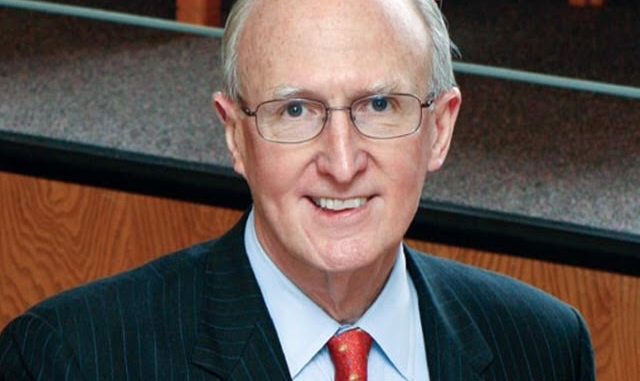
Dr. Robert A. Scott
As we approach Thanksgiving and I prepare to express gratitude for the love of family and the generous spirit of friends, I can’t help but think about conditions in our world. According to the United Nations High Commissioner for Refugees, as of May of this year there were 120 million displaced persons in the world: 43.4 million refugees needing international protection; 8.3 million displaced within their own countries; and 6.9 million seeking asylum. This amounts to 1 in 69 people worldwide forced from their homes, with minimal belongings, double the rate of a decade ago.
Here at home, homelessness is an increasing problem, especially for veterans. In the U.S. at large, 653,000, or 1 in 500, are unhoused. This is a 12.1% increase over 2022. In New York State, 5 out of every 1,000 residents are homeless, and Long Island is not immune. The causes are unemployment, poverty, mental health, cost of housing, and domestic violence, among others. Conflicts can occur when well-meaning groups find housing for migrants and ignore the plight of those already here, sometimes for generations.
At the same time, according to Forbes, there are 2,781 billionaires in the world. In aggregate, they are worth $14.2 trillion. 813 are in the U. S. and 473 in China, which includes Hong Kong for this calculation. The world’s richest 1% hold 48% of global wealth. The top 10 among the super-rich own more than the bottom 3.1 billion people.
These disparities are striking. Migrants are leaving their home countries because of violence, poverty, and climate change. They are homeless, rootless, and without the protections of a stable government. They are seeking freedom from their conditions and protection from lawlessness.
Meanwhile, the world’s wealthiest people, at the opposite end of the economic scale, are also rootless. They have many homes, in multiple locations. Most want the protections of citizenship without the obligations, like paying taxes in the countries that are the source of their wealth.
Migrants seek escape from their desperate conditions, none of which are of their making. The women and children, and men, of the arid south did not choose their fate any more than the children of billionaires chose theirs. Our life circumstances and our inheritance are the result of luck. Therefore, neither recipient is brighter or dumber, more responsible or less, because of their fortunes.
For these reasons, I think we should be more sympathetic, indeed more compassionate, to those who have lost their homes through no fault of their own. Our obligation is outlined in the Universal Declaration of Human Rights, that states,
“Whereas recognition of the inherent dignity and of the equal and inalienable rights of all members of the human family is the foundation of freedom, justice and peace in the world,
“Whereas disregard and contempt for human rights have resulted in barbarous acts which have outraged the conscience of mankind, and the advent of a world in which human beings shall enjoy freedom of speech and belief and freedom from fear and want has been proclaimed as the highest aspiration of the common people, …
“Now, therefore, The General Assembly,
“Proclaims this Universal Declaration of Human Rights as a common standard of achievement for all peoples and all nations.”
This is not to say that our country, or any country, must take in all refugees. None can do that responsibly. But we must have policies to guide our humanitarian treatment of those who are displaced and seek help whether from other countries or here at home. And we must acknowledge that we need immigrants due to our lower than needed birthrate.
It may seem ironic to pair billionaires with the unhoused, but many of them, too, act as if they are rootless. Their homes, offices, and investments are in many countries, their policy priorities are for private matters not community security. They can vote in one place but have great influence on the policies in other places because of vast wealth. They can” buy” benefits far greater than others, but their priority is for personal gain, not public benefit.
These are among the people who object to paying taxes. They use the tax benefit of donations to endow museums, which need support, in the shadow of schools that suffer from tax policies that neglect public education. Many seem to forget their own childhoods and how they benefited from public schools, libraries, playgrounds, roads, airports, and the rule of law. They seem to believe that they “made it on their own.” Yet few can honestly claim they had no help from a teacher, librarian, coach – or family.
At this time of Thanksgiving, let us think not only of the entrepreneurs whose innovations enhance our daily lives, but also of others less fortunate, whether international or domestic. Let us remember that communities are the building blocks of our nation and the world, and the root of community is what we have in common: the desire to live in peace, freedom, and security.
Dr. Robert A. Scott is president Emeritus and University Professor Emeritus, Adelphi University, and co-author, with Dr. Drew Bogner, “Letters to Students: What is Means to be a College Graduate,” Rowman & Littlefield, 2024

